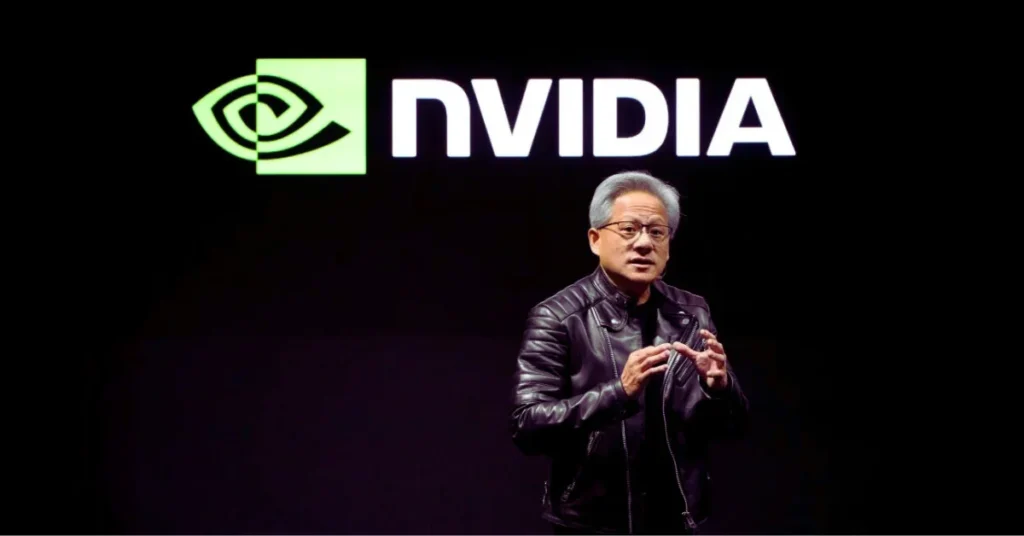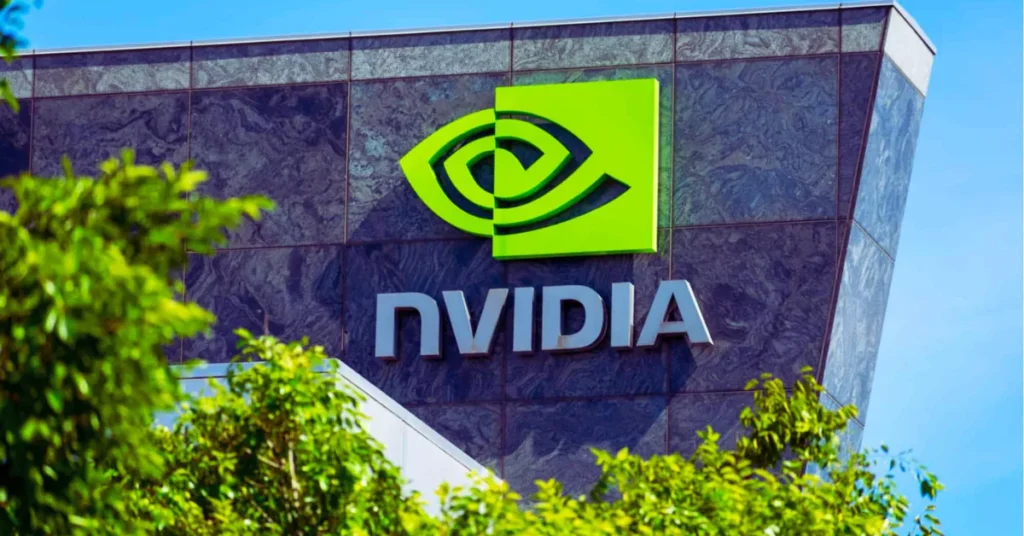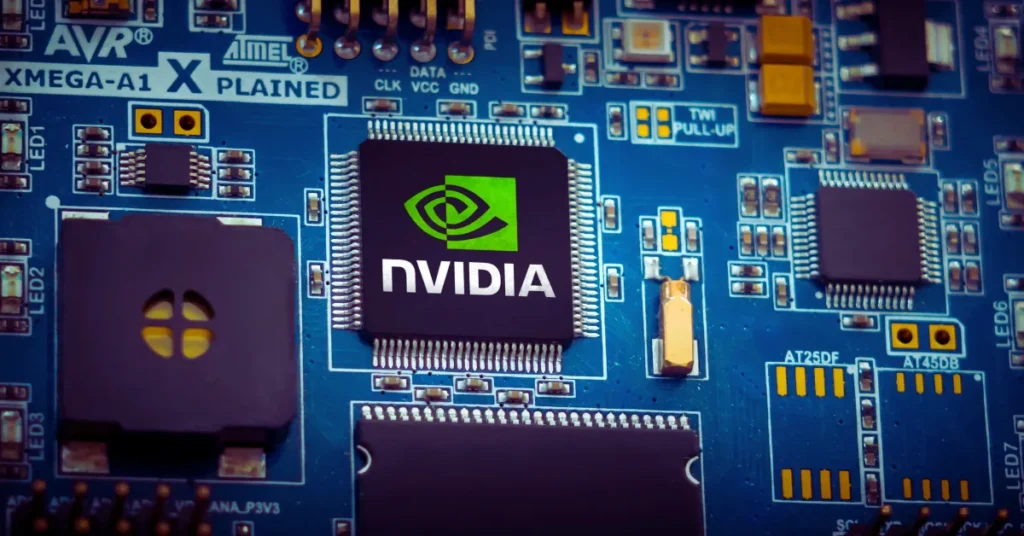Table of Contents
Why Nvidia Strong Earnings Still Rattled Investors: Artificial intelligence and Nvidia have served as economic anchors during turbulent times, yet questions are emerging about their sustainability. The AI boom has supported both financial markets and the broader economy for an extended period. However, concerns are growing about what might occur if this momentum falters.
Wall Street has been grappling with this uncertainty as major technology firms encounter extraordinary political challenges from the current administration, while questions mount regarding the massive capital flowing into AI ventures.

Recently, Nvidia, the AI sector’s leading company, delivered exceptional quarterly results that surpassed analyst projections. Despite these strong numbers, the market response was lukewarm. The semiconductor giant’s stock declined 4% in the days following the earnings announcement.
The company maintains its position as the globe’s most valuable enterprise, representing approximately 8% of the S&P 500 index. Together with the other “Magnificent Seven” technology leaders, Nvidia drives genuine economic expansion through substantial AI development investments while supporting the equity markets that Americans depend on for retirement funds and personal savings.
The S&P 500 has climbed nearly 10% while the technology-focused Nasdaq has gained more than 11% year-to-date. This growth persists despite rising concerns about broader U.S. economic performance, potential long-term impacts of President Trump’s comprehensive tariff policies, and the widespread consumer price increases they’re anticipated to trigger.

The AI Investment Rush Remains Unrealized
For corporations and investors, artificial intelligence represents a significant economic opportunity amid widespread uncertainty. In this contemporary equivalent of a gold rush, Nvidia and its rivals function as equipment suppliers: providing the semiconductor technology that numerous companies utilize to build AI systems and features.
These firms subsequently market their AI solutions to non-technology businesses seeking competitive advantages — essentially prospecting for ways AI might reduce operational costs or enhance efficiency. Why Nvidia Strong Earnings Still Rattled Investors
However, tangible results remain scarce. According to recent MIT research, an overwhelming 95% of organizations experimenting with AI have yet to generate any revenue from these initiatives. The release of these findings contributed to the Nasdaq’s multi-day decline.
“The majority of organizations aren’t realizing benefits from their artificial intelligence investments, yet they believe continuation is necessary given the scale of potential industry transformation ahead,” explains Gil Luria, a managing director at D.A. Davidson who analyzes technology companies.

Nvidia’s Situation Reflects Industry-Wide Challenges
Although surpassing analyst forecasts and generating substantial second-quarter profits of $26.4 billion, Nvidia’s recent performance failed to satisfy Wall Street expectations.
Beyond the AI sector dynamics, Nvidia has become central to larger challenges confronting American businesses — including growing concerns about free-market capitalism’s future and President Trump’s expanding influence over private enterprises.
The company gained attention this month following Trump’s announcement of an unusual arrangement: Nvidia allegedly agreed to share revenue from specific chip sales in China with the U.S. government in exchange for market access authorization. The company clarified this week that no such chips were sold in China during the recent quarter.
This announcement preceded the administration’s decision to acquire a 10% stake in Intel and consider similar arrangements across other sectors. These unprecedented measures have created apprehension throughout corporate America regarding increased government intervention in free markets. Investors continue monitoring the comprehensive effects of Trump’s extensive tariff implementation on economic conditions. Why Nvidia Strong Earnings Still Rattled Investors
Nevertheless, Pam Hegarty, a lead portfolio manager at BNP Paribas who focuses on technology investments, suggests Wall Street is adapting to the political volatility surrounding parts of the artificial intelligence sector.
“Trade restrictions and export limitations have certainly introduced considerable uncertainty, especially within semiconductors. However, investors are beginning to process this instability,” she notes, maintaining her positive outlook on the AI expansion: “The fundamental potential remains substantial.”
Frequently Asked Questions (FAQs) About Why Nvidia Strong Earnings Still Rattled Investors
Why is Nvidia so important to the AI economy?
Nvidia provides the critical semiconductor technology powering AI systems worldwide. Its dominance makes it a central driver of both AI innovation and stock market growth. Why Nvidia Strong Earnings Still Rattled Investors
Why did Nvidia’s stock drop despite strong earnings?
Although Nvidia beat analyst forecasts with $26.4 billion in quarterly profits, investor concerns about political risks, tariffs, and AI’s uncertain returns led to a market pullback. Why Nvidia Strong Earnings Still Rattled Investors
Are companies actually making money from AI investments?
Not yet. Research shows that 95% of businesses experimenting with AI have not generated significant revenue, highlighting the gap between investment and real-world results. Why Nvidia Strong Earnings Still Rattled Investors
How are U.S. politics affecting Nvidia and the AI sector?
President Trump’s tariff policies and government interventions, including unusual arrangements with tech firms, have created uncertainty for Nvidia and the broader semiconductor industry. Why Nvidia Strong Earnings Still Rattled Investors
What is the long-term outlook for AI investments?
Despite short-term volatility, experts believe AI’s potential remains massive. Investors see continued growth opportunities, even as political and economic challenges shape the sector’s trajectory. Why Nvidia Strong Earnings Still Rattled Investors
